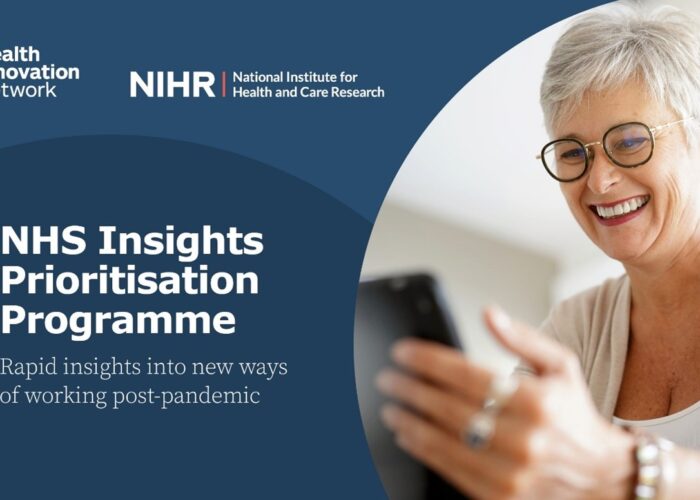Reflecting on Mental Health Awareness Week, Matthew Chisambi, Associate Director of Transformation at Imperial College Health Partners, shares how, as part of North West London’s Networked Data Lab, in collaboration with the Institute of Global Health Innovation, Imperial College London and North West London CCGs, we’ve been investigating the impact of the pandemic on children and young people’s access to MH services, and the severity of their conditions.
The Networked Data Lab is an innovative, collaborative network of advanced analytical teams across the UK, set up and funded by the Health Foundation.
The Covid-19 pandemic has impacted all of us across the last two years, but we’ve already seen that some communities and ages/life stages have been hit harder than others. For children and young people, particularly significant milestones have been interrupted or lost – long school closures, cancelled exams and the disappearance of daily, in-person socialising have been enormous challenges. This topic is particularly important to me having taught science many years ago as part of Teach First.
As well as the interruption to education and learning, the pandemic has presented young people with a lack of choice and autonomy for extended periods of time, for many increasing loneliness and isolation.
As such, for our second project as North West London’s Networked Data Lab, we strongly felt it was right to investigate the impact of the pandemic on the mental health of children and young people in our area.
North West London has a great asset in Discover, which is a linked data set that is able to see a person’s interactions across different health and care settings. This gives us a much better understanding of how people actually use services rather than solely one aspect of care e.g. hospital care. Beyond the data it was important that young people themselves helped shape and critically inform our interpretation of the data. I was reminded how insightful young people can be and truly inspired by their openness to share their experiences all with the aim of improving care for all.
As part of our focus for Mental Health Awareness Week, we shared some of our interim findings, at one of Health Data Research UK’s (HDR UK) bi-monthly science webinars. Some things we already knew, e.g. demand for mental health services has increased for all demographic groups since October 2015. However, since the start of the pandemic (March 2020), we empirically discovered three key things:
- More people need formal support mental health services. There has been a huge increase in patients who were previously not known to mental health conditions. This created a significant fear for those already accessing mental health care, who worried they would need to do significant self harm to be seen.
- Some groups seem to have had their access disrupted. Some of our citizen groups had less access to services than we would have expected: 5-11 year olds, 18-21 year olds and males.
- Transition to adult services was disrupted. Transition from child to adult has always been a challenge but it seems to have been delayed during the pandemic and some young people felt lost during the system if they were on the boundary.
So, what does this mean and what can we do? We’ll be publishing our full set of findings, alongside our service intervention recommendations, in the summer, alongside the Health Foundation’s national report, joining up the findings of the five Networked Data Labs across the UK to give us a better picture of the impact across England.
We’ll also be sharing more about both our analytical and PPIE approach – including how we’ve worked with young people in North West London to create a Young People’s Advisory Group, and how our Professional Reference Group, which is part of the NHS ecosystem, are continuing to help us translate these results into improving services.
We are working directly with North West London’s Children’s Mental Health Steering Group to see how we can make real life changes to services, working in a compassionate way with a professionals who have significant fatigue after the last two years.
To find out how we get on, make sure you’re signed up to our newsletter, and that you’re following @ldn_ICHP, @imperial_IGHI and @healthierNWL on Twitter. You can also follow @mchisambi if you want!
For more information about the North West London Data Lab, or if you have any questions please do get in touch with Emma Sharpe-Jones, Imperial College Health Partners Communications Manager.



